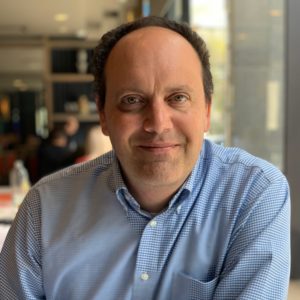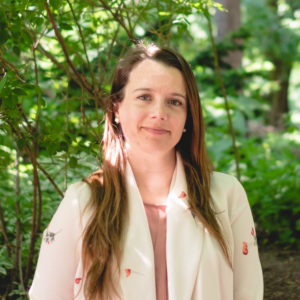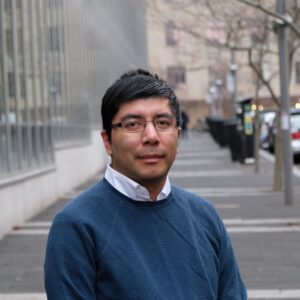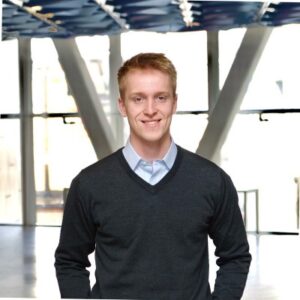About Us
Urban change and de-industrialization have created a legacy of vacant and derelict land that is increasingly seen as a development opportunity rather than planning problem. Southern Ontario, like most older industrial regions, is home to many acres of abandoned or underutilized properties that are either known or suspected to be environmentally contaminated. Such properties, commonly referred to as brownfields, represent budding prospects for community redevelopment and urban renewal. A good example of such an opportunity is the West Don Lands in Toronto, which was developed to be home of the athlete’s village for the 2015 Pan American Games and is now a vibrant residential community.
The transformation of West Don Lands, produced by Infrastructure Ontario and Waterfront Toronto.
Our Team
ReActivate Lab brings together an interdisciplinary team of scholars, students, and stakeholders to develop and carry out research projects and other activities related to brownfields redevelopment.

Christopher De Sousa
RPP, Chris is a Professor in the School of Urban and Regional Planning at Toronto Metropolitan University. His research activities focus on various aspects of brownfield redevelopment and sustainability in Canada and the United States. He currently serves as Past President of the Canadian Brownfields Network, is a Steering Committee Member on the US Agency for Toxic Substances and Disease Registry (ATSDR) Brownfields/Land Reuse Health Initiative, and serves on the Executive Committee for Ryerson’s Centre for Urban Research and Land Development. Chris is the proud recipient of the 2018 Brownfielder of the Year award.

Reanne Ridsdale
Reanne is PhD student at Toronto Metropolitan University, receiving a Ryerson Graduate Fellowship for 2016-2019. Her research focus on brownfield redevelopment and community revitalization. She is particularly interesting in contaminated land management in marginalized communities. Reanne recently completed a research project for Canadian Brownfields Network with a Mitacs Grant. Reanne completed her Master’s in 2015 from the University of Saskatchewan. Her thesis, titled “Assessing Sustainable Remediation Using Sustainability Discourse,” is focused on how sustainability contributes to sustainable remediation, and its efficacy in decision-making.

Adam Gardner
Adam is currently conducting an independent research project through the U.S. Fulbright program. Over the course of 9 months, he will explore the potential for renewable energy projects on brownfields within First Nations communities across Canada. He will specifically focus on sites managed by Indigenous Services Canada within FCSAP’s Phase IV (2020-2024), encompassing 376 brownfields located within 155 communities. Through this project, he hopes to understand current gaps in the Canadian Brightfield research space and quantify the potential benefits of such redevelopment in terms of environmental justice (as measured by job creation, community investment, health benefits from the reduction in diesel usage, lower energy prices, increases in energy security and reliability), mitigation through the reduction of greenhouse gas emissions, and conservation by preserving greenfield land. His research deliverables will include an academic paper and a GIS Mapper similar to the EPA’s Re-Powering America Mapper, a tool he hopes will be utilized to connect communities, government, and developer stakeholders. Furthermore, he hopes to inform government funding of such projects in future FCSAP funding rounds. His work is supported and encouraged by Christopher De Sousa at Toronto Metropolitan University, Indigenous Services Canada and the FCSAP program, and the Canadian Brownfields Network.
Adam received his undergraduate degree from Bates College in Lewiston, Maine. He studied Environmental Studies and Art History, and wrote an undergraduate thesis on the potential uses of brownfield redevelopment within the context of New York State’s landmark 2019 sustainability law, the New York State Climate Leadership and Community Protection Act. Upon graduating, he worked with the New York State Energy Research and Development Authority as a community engagement consultant within their Build-Ready program. Build-Ready examines large-scale, difficult-to-redevelop brownfields across the state and provides assistance to renewable energy developers looking to reuse these sites for energy projects. Adam then worked at UGE, a solar developer, as the manager of West Coast and Brownfield development within the company.

Guillaume Perreault
Guillaume is a Master of Planning graduate from Toronto Metropolitan University in 2024. At the ReActivate Lab he has helped Christopher De Sousa researching information on brownfield financing in Quebec, specifically related to the Social Science and Humanities Research Council’s Insight Grant Program: Examining the Role of Public Funding and Financing Incentives in Supporting Brownfield Redevelopment in Canada.

Simon Horner
During Simon’s time at TMU he assisted in reviewing the availability, application, and efficiency of municipal funding/finance tools used by government agencies and the private development industry that assist in the assessment, remediation, and redevelopment of contaminated sites. He worked alongside Dr Christopher DeSousa director of the reACTIVATE Lab at Toronto Metropolitan University and James Tischler, Development Director for the State of Michigan Land Bank Authority.
Simon joined Bousfields in May 2023 as a Planning Intern while completing his Master of Planning in Urban Development degree at Toronto Metropolitan University. Prior to TMU, Simon worked in the private sector advising on innovative and preferred transit options for one of North America’s largest Indigenous public-private partnerships situated on 1,200 acres of reserve land in Calgary, Alberta.
Simon joined Bousfields as a Planner in April 2024 after completing his Master’s degree and is involved in a wide range of projects in Toronto and the GTA. He assists in the preparation of planning rationale reports and associated reports and studies, draft zoning by-law amendments, site-specific research and due diligence, and development application coordination and submissions.
